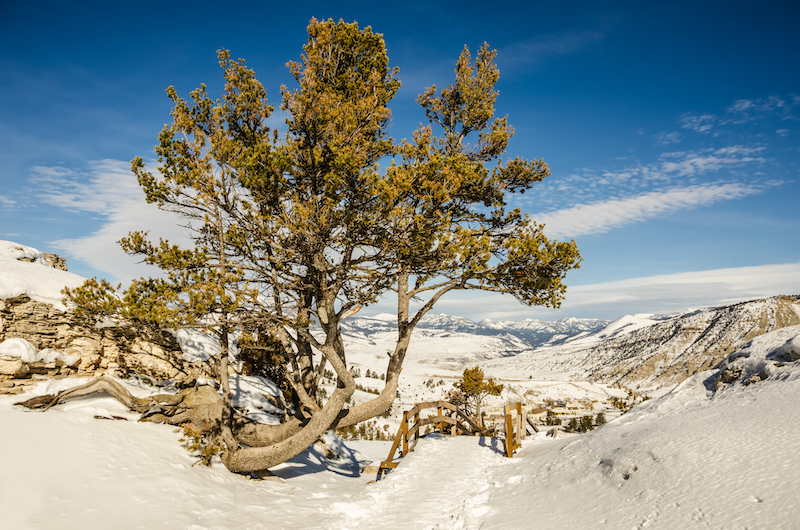By Jean Bjerke
The famous early 20th-century naturalist John Muir said, “When we try to pick out anything by itself, we find it hitched to everything else in the Universe.” This is so true of the Whitebark Pine of the Greater Yellowstone Ecosystem.
We might think that threats to a single type of tree are no big deal, as there are so many different trees in the mountains. However, a number of recent articles about the Whitebark Pine sound an alarm about the fate of this species and its potential impact on animals from red squirrels, ground squirrels, chipmunks, and numerous bird species, to grizzly and black bears.
One author calls the Whitebark Pine a “relic of the ice age.” It grows at high elevations from the Canadian Rockies down through central Idaho, southwest Wyoming, Greater Yellowstone, and even southern California. The oldest known specimen is 1,200 years old.

The seeds or nuts of the Whitebark Pine are highly nutritious – full of fats, calories, proteins, and carbohydrates. Birds and squirrels love them, and grizzly bears seek them out in fall when they are fattening up for winter hibernation. Squirrels will often stash large amounts of pine nuts, and grizzlies, who can’t climb trees easily to get the pine nuts, will come along and eat a squirrel’s whole stash in one sitting. As John Muir would have said, these animals are hitched to the Whitebark Pine.
Sadly, the Whitebark Pine in Greater Yellowstone is in danger. The National Park Service says the tree faces “an uncertain future.” The trees have been attacked by pine beetles and blister rust and impacted by wildfires and drought. Increases in the number of pine beetles are related to warmer temperatures, and both warmer temperatures and moisture impact the spread of blister rust, caused by a fungus. John Muir would have said, they are all “hitched together.”
Recent articles carry titles like “Whitebark pine tree faces extinction threat . . .” and “Whitebark pine trees are dying across the US West.” The Whitebark Pine is listed as an Endangered Species. Meantime, what happens to the Whitebark Pine will impact squirrels, grizzlies, and many more.
